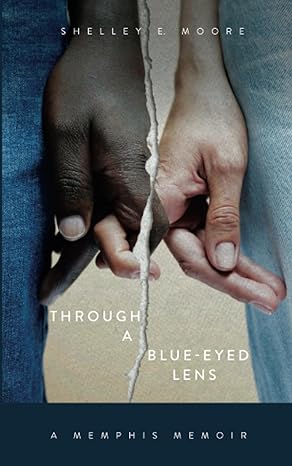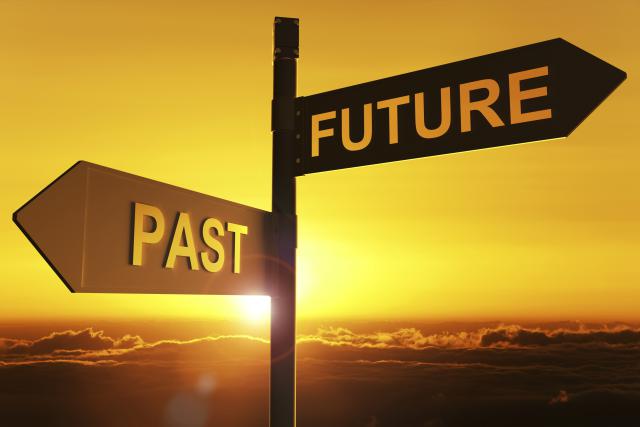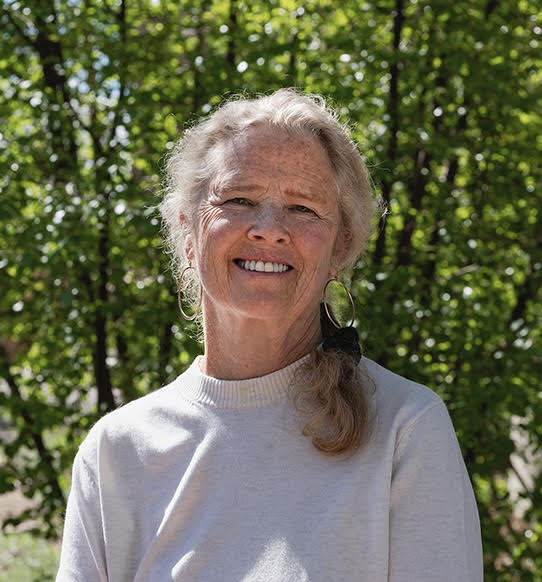As we look ahead to a new year, I have asked some Memphians who care deeply about their city’s future for their resolutions or reflections for 2024. I am deeply grateful for their thoughtful submissions. For the entire month of January, I have posted their thoughtful commentaries and I close them out with this final contribution.
 It is by Shelley Moore, author of Through A Blue-Eyed Lens: A Memphis Memoir, her poignant personal story about her journey as a teenager in segregated Memphis in the 1960s and her conflicts with the city’s racial divisions.
It is by Shelley Moore, author of Through A Blue-Eyed Lens: A Memphis Memoir, her poignant personal story about her journey as a teenager in segregated Memphis in the 1960s and her conflicts with the city’s racial divisions.
In 1972, I left Memphis as a disillusioned and somewhat traumatized teenager and, thirty-nine years later, returned as a curious adult, in the hope that Memphis had changed as much as I had. I wanted to see if we were a good fit. Twelve years later, my fondness for Memphis remains strong, but while life here consistently brings me deep joy, it also breaks my heart. Every single day.
I recently met a white, Jewish couple who immigrated to the United States in the late 1980s, desperate to escape the horrors of apartheid, eager to reimagine their lives, believing that America “had it all figured out.” Boy, were they mistaken and they know it. Today, I harbor similar feelings because, while so much goodness abounds within this city and while there are arrmies of Memphians doing critically important and effective work, we certainly don’t “have it all figured out.”
I have never lived without life’s most basic needs, which means that I have no idea what it actually feels like to live on the streets, in one’s car or in substandard housing, no concept of the distress and uncertainty endured by so many individuals and families on a daily basis. Approximately twenty-five percent of Memphians, the majority of whom are African Americans, live in poverty. Deep poverty. That statistic reflects a most unlevel playing field and reveals hands dealt at birth, condemning the poor to what is considered by many to be a birthright, a deserved and irrevocable lot in life. When Memphis grants massive tax breaks for the construction of yet another posh hotel and a seemingly endless stream of upscale apartment complexes, I am left to wonder how exactly the afore-mentioned twenty-five percent factors into or benefits from that growth. As the daughter of a former Memphis planning director, I am not opposed to forward-thinking development, but I find it unconscionable to simultaneously ignore the needs of our fellow citizens while celebrating and parading riches and privilege. Our city has been plagued for centuries by the disparities between the haves and the have nots, but today’s Memphis has hit an all-time low. Take an uncomfortable drive on the side and back streets of North and South Memphis and you’ll catch a glimpse of the depths of deprivation within our city limits. The physical manifestations of abject poverty, unfavorable to human life as we know it, are grotesque.
We Memphians have had a very tough year – all of us – as we’ve witnessed unprecedented waves of wanton property destruction and a raging homicide rate. We sweep up the mess and bury the dead, we hold vigils and send requisite thoughts and prayers, replace shattered glass and live with broken hearts not so easily repaired. It’s tempting and far too simplistic to frame this as an “us” and “them” problem, as if we’re speaking of two different species. You know what I’m talking about. The trouble makers and the good stock. The people of color and the rest of us. Unless and until we honestly address the connections between untenable crime rates and staggering poverty rates, all of us will continue to suffer the consequences and ramifications of living in a city so terribly divided. Generation after generation of cyclical and choking poverty in the midst of conspicuous wealth and comfort is a recipe for disaster, resentment driving desperate people to acts of desperation. Of course individuals need to be held accountable for their actions, but that is hardly the beginning or the end of the story.
It’s hard, really hard, not to feel like a victim of such widespread and unpredictable violence and violation. I include myself in the growing numbers of women, in particular, who no longer venture out after dark. I am so tired of hearing about scores being settled with bullets and I certainly don’t want to witness another gunfight in my Midtown neighborhood. Everyone I know, Black and white, is frustrated and exhausted. Some are terrified. Our city is under siege and, as citizens who share this urban sprawl, we really are all in this together – those of us who have more than our share and those of us who have nothing to spare. No one is immune, the long-term prognosis of any community being inexorably tied to and completely reliant upon the health and well-being of its members. All of its members.
I don’t have concrete answers for most of what ails Memphis. I can’t even claim to have a handle on the pertinent questions. But, I fervently believe that we cannot pray, pretend, police or philanthropize our way out of this quagmire. I know that we’re suffering a collective weariness, but these issues will not self-resolve simply because we’re tired of the conversation. Our city and county governments lack a sweeping, comprehensive and unapologetic commitment to addressing the stark realities and impacts of poverty, opting to spend precious resources and energy on patches and excuses rather than prevention and proaction. Something is terribly amiss.
Perhaps 2024 will see Memphis become the poster child for 1) thinking far outside the traditional boxes in finally understanding just how immoral and consequential it is to ignore the plight of one quarter of its population, for 2) designing and implementing bold, audacious strategies with targeted goals that effectively begin to eradicate such generational cycles, for 3) lifting up the neediest amongst us in sustainable and life-affirming ways and for 4) truly internalizing everyone’s need for and inalienable right to a life of dignity, purpose and ownership, exposure and opportunity – the very foundations of life that most of us take for granted.
Perhaps in 2024, Memphis needs to take a page from the playbook of President Roosevelt’s Work Progress Administration (WPA), a bodacious experiment undertaken during the dark days of the Great Depression. That program overcame monumental logistical challenges and ultimately employed millions of Americans whose labor not only sustained their own lives but also dramatically improved the state of our union in immeasurable and enduring ways. The endeavor was not without flaws and failures, but Memphis just might benefit from a similarly creative intervention during these troubled times. The money is there. Making it available is simply a matter of political will.
Resolutions rarely translate well between the best of intentions and directed, sustained action. But, I’m never able to completely give up hope for myself, for Memphis or for our humanity, because I wouldn’t want to know life without that spark of anticipation and that deep well of curiosity. So, here’s to our remarkable city and its residents as we toast the year we leave behind and the one that lies ahead. John Lennon, who died forty-two years ago this month, asked us to imagine. Martin King, whose birthday we’ll celebrate in January, dared us to dream.
Let’s make them proud.





